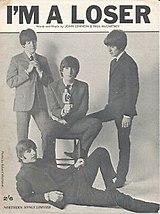The term “bad loser” is one that I imagine most people might have heard in their lives.

If you haven’t heard the term before (or English is not your first or second language), it refers to the game players among us who just don’t like to lose.
People have different responses to a game’s loss.
Losing a game is not necessarily bad in any way. Losing means learning something about your game, about your partner, and about the opposing team. We have to lose games in order to know how to win them.
But still, there are some people who could be described as “bad losers” at the bridge table.
There are different ways to feel about losing… How do you?
If you yourself are the one people might call a bad loser, there are ways to tone it down. Nobody – and usually nobody – wants to be the most hated player at the table.
The angry or depressive loss
If you feel signs of anger, disappointment, or depression after the loss of a game, restructure the way you imagine losing right now.
A game’s loss doesn’t reflect on anything as personal as you might think. Rarely, but possibly, your reaction goes back to a previous (and bad) experience where loss triggered something else.
Rethink.
Losses are sometimes a good thing.
Even sports professionals considered the best in the world had to lose.
The revealing loss
A loss at bridge can also be revealing.
If you have lost due to playing what you would feel is “worse than usual”, it might be your way of displaying signs of stress.
Stress can be mental or physical. Many times, stress can also be hidden to you because you’re too stressed about the stress itself to notice.
But can your bridge losses tell you when something else is stressing you out?
Well, yes.
The speechless loss
I used to play a lot of 8-ball, and it’s pretty astonishing when someone cleans the table with a few moves (or with just one).
The same sometimes happens at bridge.
The speechless loss is the one where you’ve just lost so badly that there are, at that time, no words for it.
It can happen when playing experts, but is called “beginner’s luck” when you still lose playing a less experienced partnership.
How do you deal with the speechless loss?
Just move on, and learn what you can from how the cards happened to play out.
The learning loss
Speaking of learning from bridge, the learning loss is the type of loss which I try to have more of. Instead of getting infuriated at my play, the cards, or the odds (which I’ll admit that I sometimes have), I have discovered that every game is a learning experience.
Review every game you play, and especially every game you lose.
A postmortem examination of the cards can tell you how to play better, how to respond better, and how to have more wins over losses given time and practice.
